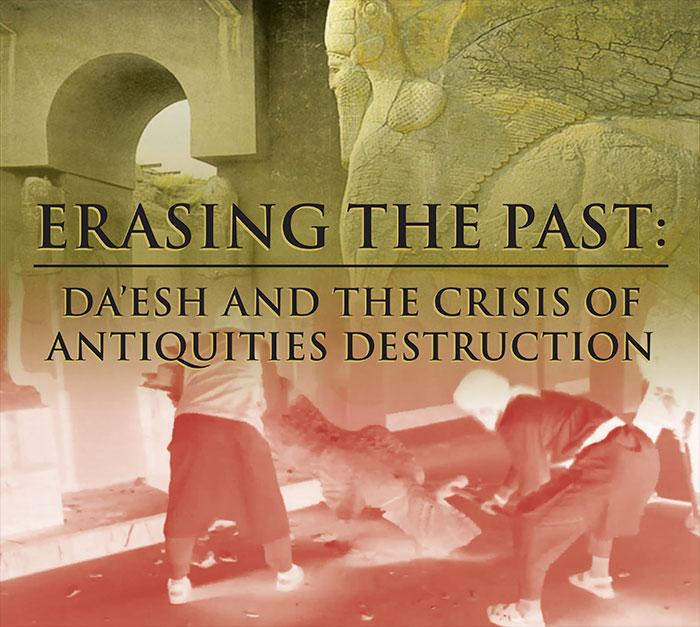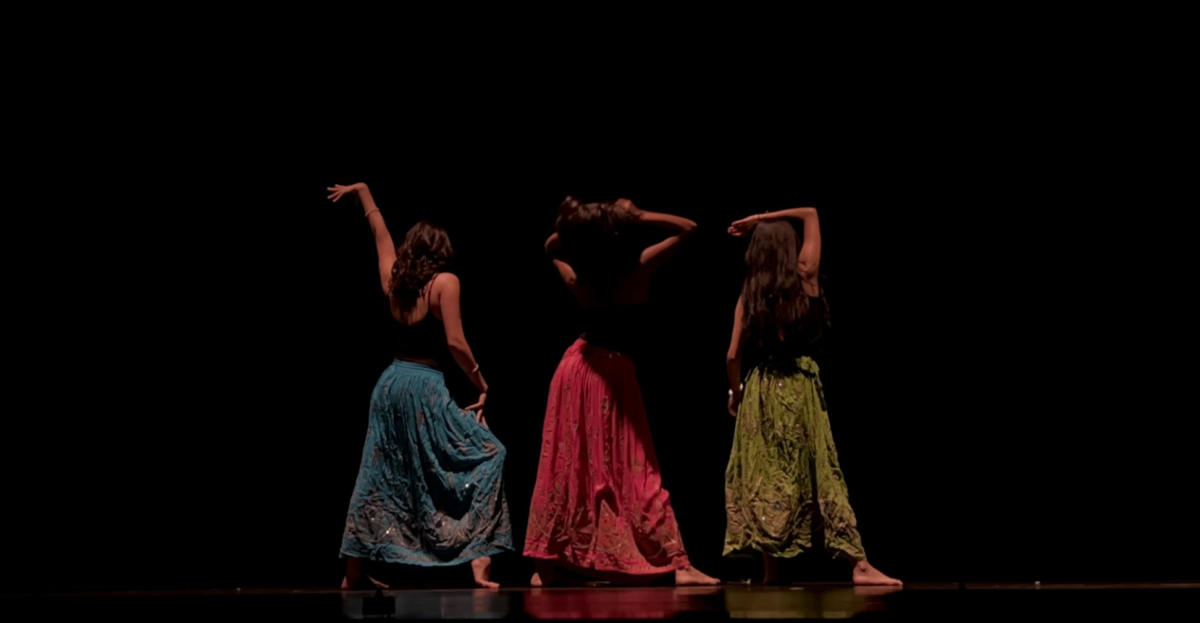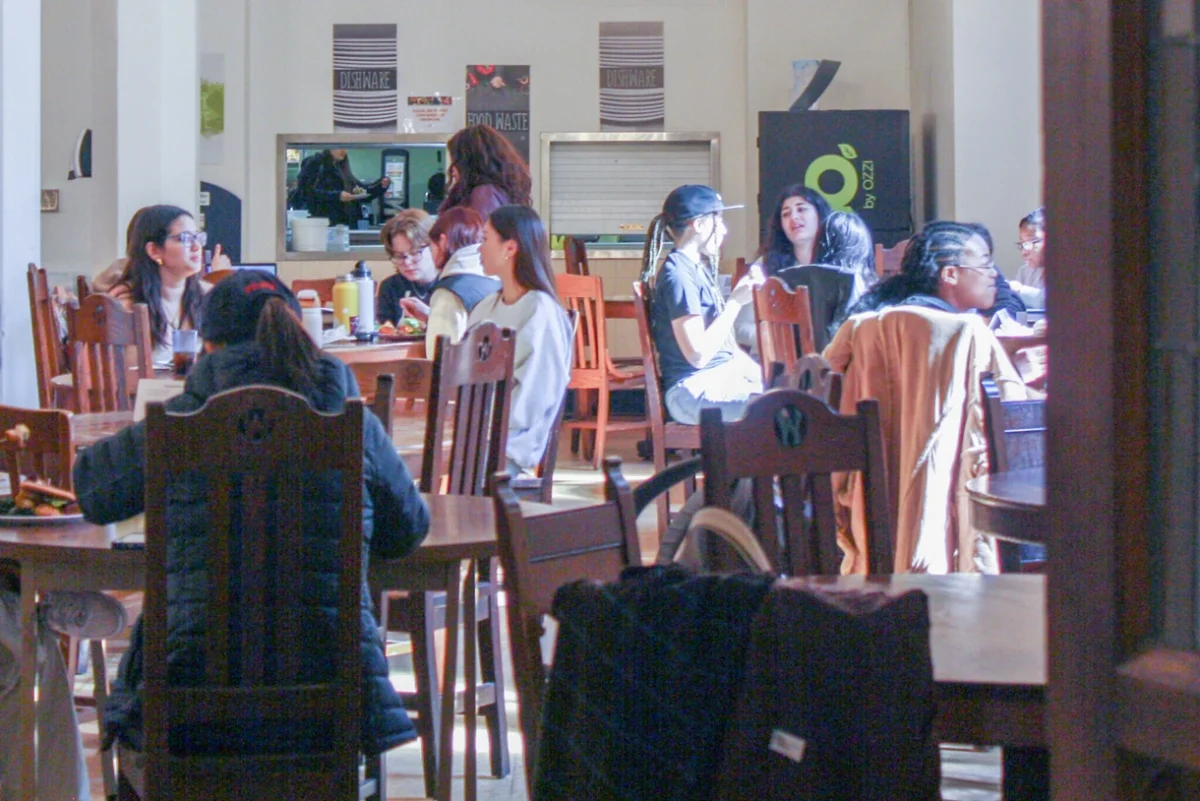The day-long conference on Thursday Sept. 24, “Erasing the Past: Daesh and the Crisis of Antiquities Destruction,” brought interdisciplinary lecturers together in an effort to facilitate a narrative about the destruction of cultural heritage in the Middle East and how to respond.
The conference was a joint effort between the history and religion departments and was primarily organized by Ed Silver, professor of the religion department. Silver had been discussing the crisis of the destruction of antiquities for a while before beginning to organize this conference and began thinking about what his role and responsibility as a scholar could be in addressing the issue.
“A big part of the motivation behind it was just this impotence that a lot of scholars who work with antiquity and that work in the field that you see these sites and museums being destroyed right in front of you, you know the importance of them for anchoring civil society and educational institutions and cultural institutions. And there’s just literally nothing to be done about it,” Silver said.
After discussing the issue with Guy Rogers, professor of history, Silver began reaching out to connections in the academic world in order to build a cross-disciplinary conversation between Wellesley College and other experts in the field. This is one of the first conferences of its kind concerning the destruction of Syrian antiquities, especially considering the broad range of topics and angles of the situation discussed.
“The idea was to bring cultural heritage specialists, lawyers, archaeologists, museum curators, scholars of Islam, and bring them together to have a conversation about what’s happening and what might be done,” Silver explained.
“My aim for this conference was to get people into conversation with people that they don’t usually talk to, so I wanted it to be cross-disciplinary. I wanted it to have a good range of different sorts of political educational backgrounds represented.”
Before the conference, someone posted a link to a jihadist Youtube video on the Facebook page of the event. In response to this act, two campus policemen searched bags before allowing guests to enter Collins Cinema, where the conference was taking place.
“The decision was that we should just have a few policemen here to just be looking at bags and that kind of thing. I didn’t want there to be a feeling that we were under siege or the feeling that this was some ‘high-security’ event. I wanted people to feel comfortable here. But at the same time, this is the world we live in, so best to take precaution,” Silver said.
After an introduction by Silver, the two-part conference began with a lecture by a journalist from Newsweek and was continued by scholars of Islamic art and archaeology and ended with a senior editor of the New York Review of Books.
Although the conference was based on the destruction of antiquities and the implications of this problem, the speakers provided broader information to give context to the rise of the Islamic State and the conditions that led up to the destruction. There was also a large amount of focus on topics such as Daesh’s use of social media and the effects of the rapid propagation of violent imagery as well as the United States’ role in feeding the cycle of terrorism by purchasing looted goods being sold in underground markets.
The lecturers also spoke about erasing the image that the destruction of the antiquities is “medieval” and also that it represents the idea of “true” Islam. Some asserted that the shrines that Daesh targeted for destruction were once symbols of the cosmopolitanism that was a part of the culture, especially during the medieval period. Some shrines were active sites for other Muslims in the area whose voices and ideologies are oppressed by Daesh. The emphasis on a monolithic image of Islam and the destruction of shrines and idols is actually a modern notion.
As the speakers opened up questions for the attendees, the conversation turned to address how academia interacts with journalism in the case of Daesh and the question of how holding conferences like the one that was being held could make a difference in stopping the destruction of antiquities.
Steffany Poveda ’19, who attended the conference as an assignment for her archaeology course, commented on the lack of clarity in what actions are necessary to prevent further destruction. In her opinion, there was more focus on giving context to Daesh and the research done in Syrian antiquities.
“[The conference] could get people starting to think about what there is left to do, or what is even possible, which right now seems like there isn’t much that they can do at the moment without having more context and support from others,” Poveda said.
One of the speakers, Stephennie Mulder, a scholar of Islamic art and professor at the University of Texas, provided an answer to how conferences and educating the public could make a difference.
“I really do believe that there is a role that scholars can play in [the situation in] that it’s not just neutral raising awareness. We do have the ability, especially if there are large numbers of us, that are thinking and moving in one direction to shape the narrative, and craft a narrative and raise a new generation of young people and also of the people who are already our age and older to begin to shift consciousness about the significance of heritage in general,” Mulder said.





